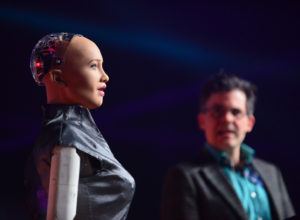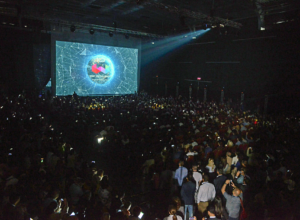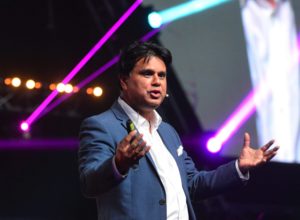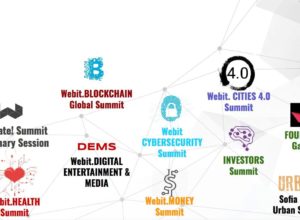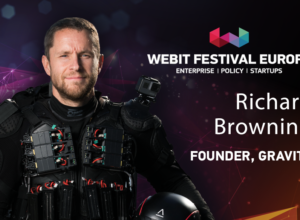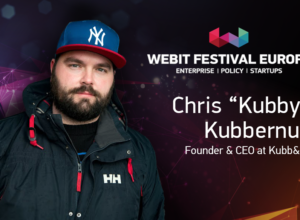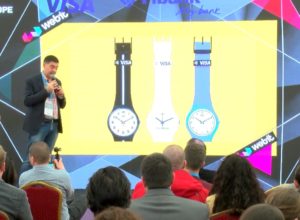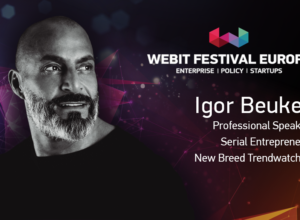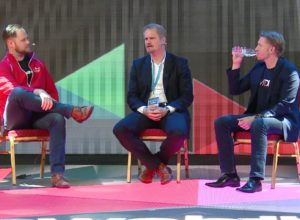Tag: technology
Join Webit.Festival Europe to see incredible technologies demonstrated before you
 Harmony presented by Guile Lindroth - Realbotix, CTO
Time: 14th May, 14:30-14:40 at Innovate Stage
The first companion robot with advanced AI. The unique machine has a human-synthetic skin, synced eyes, lip synced mechanics, articulated neck, changeable face and customizable apps
Harmony presented by Guile Lindroth - Realbotix, CTO
Time: 14th May, 14:30-14:40 at Innovate Stage
The first companion robot with advanced AI. The unique machine has a human-synthetic skin, synced eyes, lip synced mechanics, articulated neck, changeable face and customizable apps
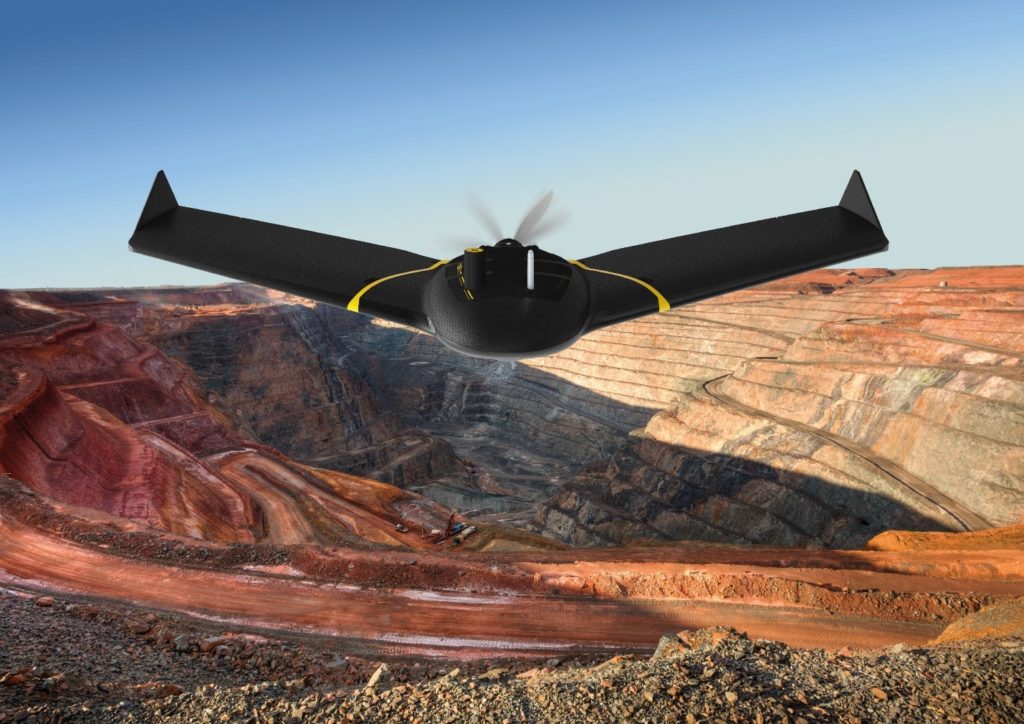 eBee presented by Jean-Thomas Celette - senseFly, MD
Time: 15th May, 11:39-11:49 at Innovate Stage
The professional’s fully-autonomous mapping drone is able to capture high-resolution aerial photos tou can transform into accurate orthomosaics (maps) & 3D Models.
eBee presented by Jean-Thomas Celette - senseFly, MD
Time: 15th May, 11:39-11:49 at Innovate Stage
The professional’s fully-autonomous mapping drone is able to capture high-resolution aerial photos tou can transform into accurate orthomosaics (maps) & 3D Models.
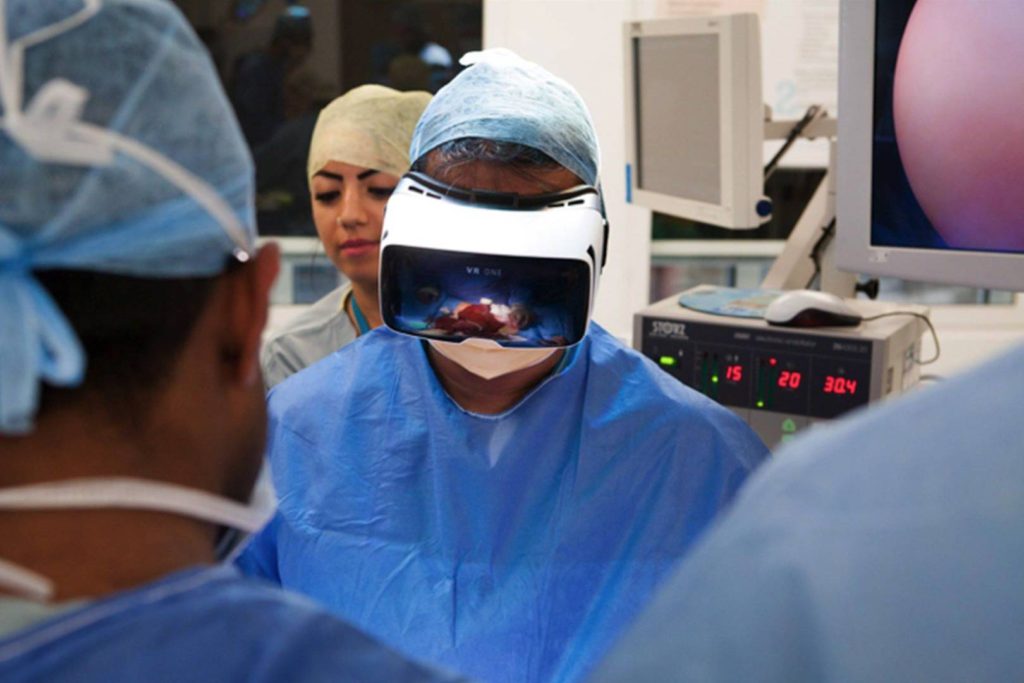 Augmented Reality presented by Prof. Shafi Ahmed - Medical Realities, Chief Medical Officer
Time: 14th May, 16:22-16:32 at Innovate Stage
The Medical Realities Platform delivers high-quality surgical training using Virtual and Augmented Reality. It is a technological powerhouse designed to deliver realism and immersion.
Augmented Reality presented by Prof. Shafi Ahmed - Medical Realities, Chief Medical Officer
Time: 14th May, 16:22-16:32 at Innovate Stage
The Medical Realities Platform delivers high-quality surgical training using Virtual and Augmented Reality. It is a technological powerhouse designed to deliver realism and immersion.
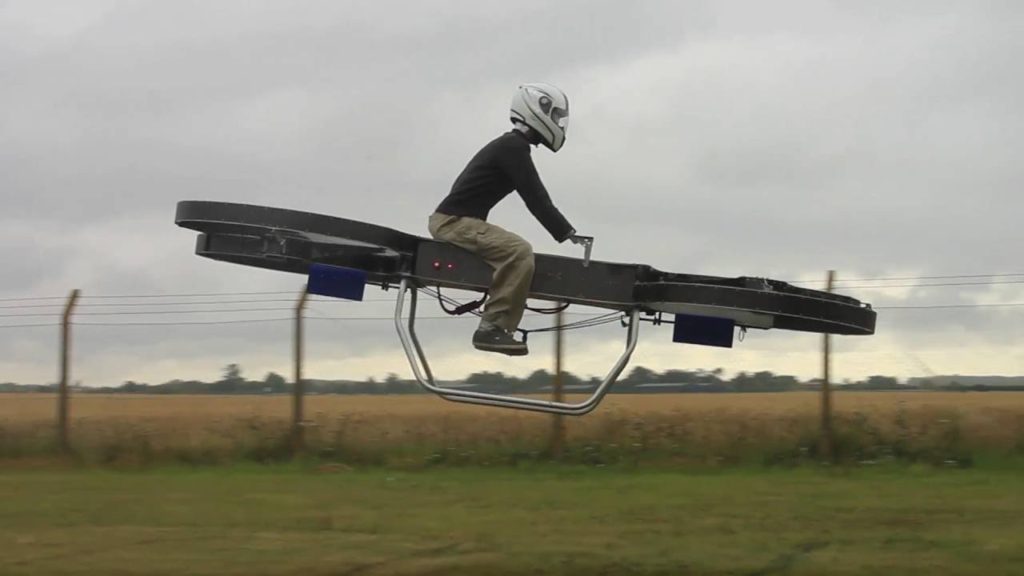 Hoverbike presented by Oriol Rafart - Malloy Aeronautics, CEO
Time: 15th May: 17:17-17:27 at Innovate Stage
The Hoverbike can deliver heavy aid, people, and equipment over building, rivers and mountains autonomously at the push of a button - cheap, safe and reliably.
Hoverbike presented by Oriol Rafart - Malloy Aeronautics, CEO
Time: 15th May: 17:17-17:27 at Innovate Stage
The Hoverbike can deliver heavy aid, people, and equipment over building, rivers and mountains autonomously at the push of a button - cheap, safe and reliably.
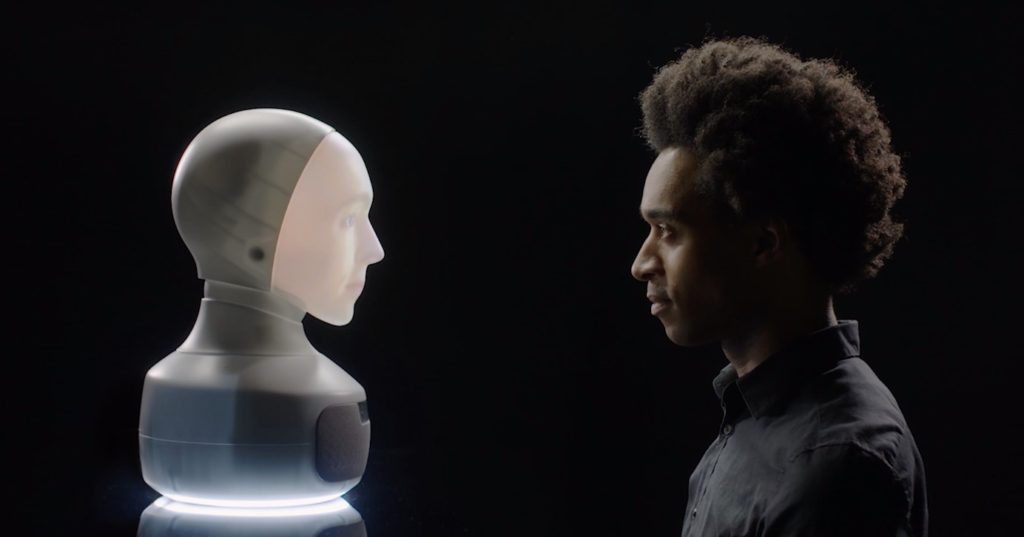 Furhat presented by Samer Al Moubayed - Furhat Robotics, CEO
Time: 15th May, 09:52-10:07 at Innovate Stage
The social robot that communicates with us humans with self learning social skills.
Furhat presented by Samer Al Moubayed - Furhat Robotics, CEO
Time: 15th May, 09:52-10:07 at Innovate Stage
The social robot that communicates with us humans with self learning social skills.
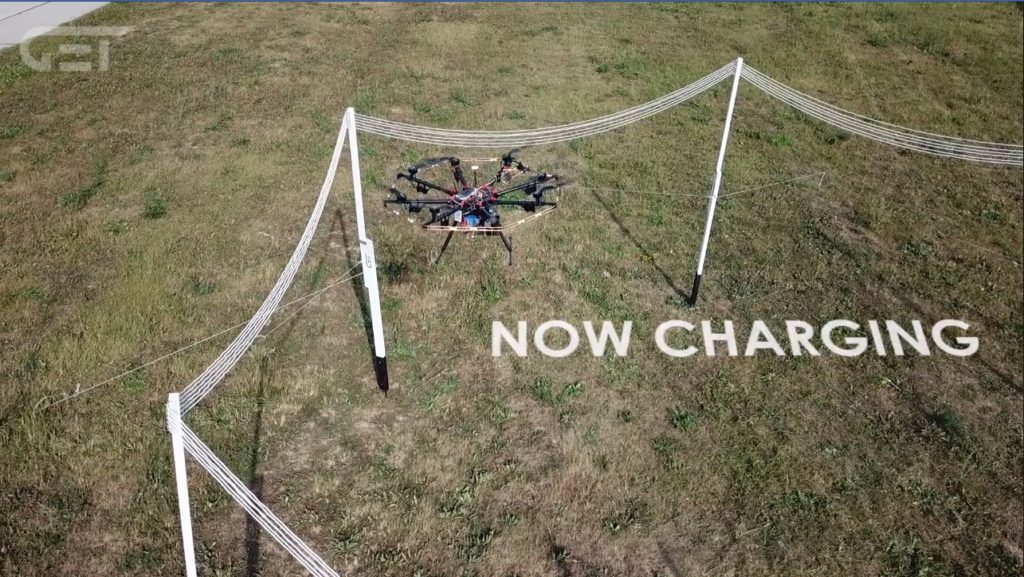 GET presented by Leonid Plekhanov - GET, CEO & President
Time: 15th May, 15:52-16:02 at Innovate Stage
Wireless power network that enables battery-powered drones to recharge while still in flight
GET presented by Leonid Plekhanov - GET, CEO & President
Time: 15th May, 15:52-16:02 at Innovate Stage
Wireless power network that enables battery-powered drones to recharge while still in flight
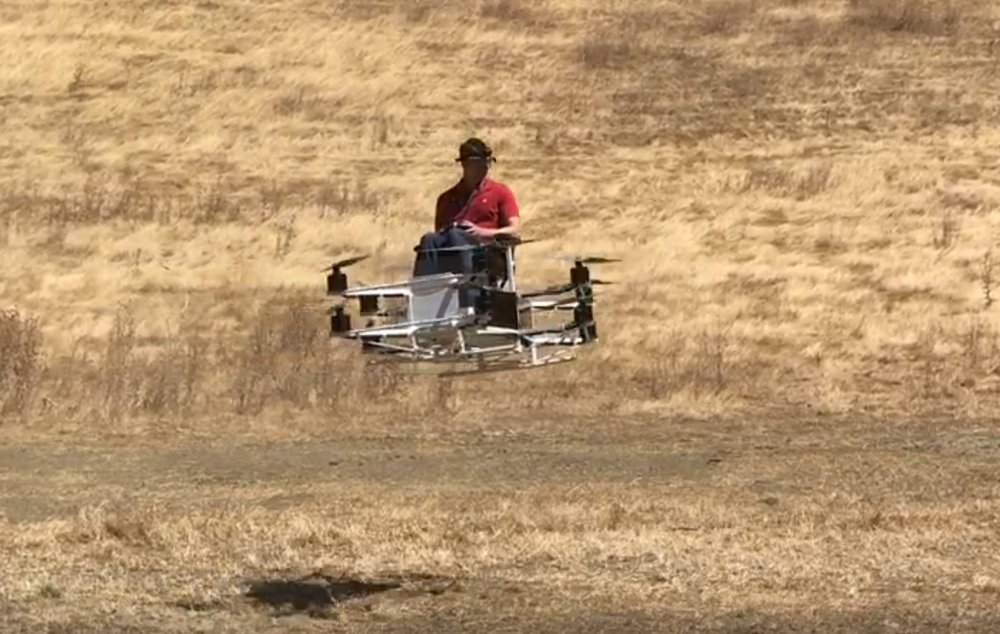 FlytCycle predented by Ansel Misfeldt - FlytAerospace, Founder
Time: 14th May, 17:23-17:33 at Innovate Stage
Hoverbike that can traverse any terrain just a couple of feet off the ground
FlytCycle predented by Ansel Misfeldt - FlytAerospace, Founder
Time: 14th May, 17:23-17:33 at Innovate Stage
Hoverbike that can traverse any terrain just a couple of feet off the ground
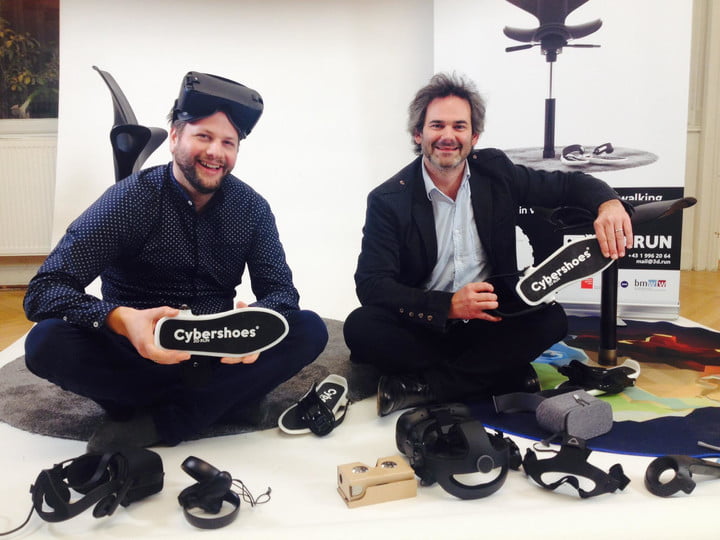 Cybershoes presented by Michael Bieglmayer - Cybershoes, CEO
Time: 14th May, 14:30-14:40 at Innovate Stage
The only shoes for walking in VR that won’t let you bounce into a wall
Cybershoes presented by Michael Bieglmayer - Cybershoes, CEO
Time: 14th May, 14:30-14:40 at Innovate Stage
The only shoes for walking in VR that won’t let you bounce into a wall
 EnduroSat presented by Raycho Raychev - EnduroSat, Founder
Time: 15th May, 17:17-17:27 at Innovate Stage
EnduroSat provides simpler access to space for visionary business customers, scientists and technologists. It is a new type of interconnected and decentralized space infrastructure.
During the event you will get the chance to listen to top enterprise, science and policy leaders, such as the Airbus Defence and Space CEO Dirk Hoke, the Senior Parther at McKinsey & Co Paul Willmott, the VP of Amazon Paul Misener, the EU Commissioner for Digital Economy and Society Mariya Gabriel, the Deputy Director-General of World Trade Organization Yonov Frederick Agah and many others.
Check out the full agenda of Webit.Festival Europe here
Here you can see a full list of the confirmed speakers at Webit.Festival, while here you can get all the information you need about the tickets for the event.
EnduroSat presented by Raycho Raychev - EnduroSat, Founder
Time: 15th May, 17:17-17:27 at Innovate Stage
EnduroSat provides simpler access to space for visionary business customers, scientists and technologists. It is a new type of interconnected and decentralized space infrastructure.
During the event you will get the chance to listen to top enterprise, science and policy leaders, such as the Airbus Defence and Space CEO Dirk Hoke, the Senior Parther at McKinsey & Co Paul Willmott, the VP of Amazon Paul Misener, the EU Commissioner for Digital Economy and Society Mariya Gabriel, the Deputy Director-General of World Trade Organization Yonov Frederick Agah and many others.
Check out the full agenda of Webit.Festival Europe here
Here you can see a full list of the confirmed speakers at Webit.Festival, while here you can get all the information you need about the tickets for the event.
What to expect from the digital transformation in 2019
The world is advancing in its digital transformation process
Being innovative and decisive, persistently driving the change, will be basic traits for any organization planning to stay competitive and live up to the expectations of our technologically thriving world. The 2019 DXC Global Digital Enterprise Survey, written by The Economist Intelligence Unit (EIU) and sponsored by DXC and Leading Edge Forum suggests that this will be “a year of decision-making and profound change”. This statement supports Diana Stefanova’s (Managing Director EMEA R&D VMware) views on digital transformation shared on the stage of Webit 2018: “Companies have to constantly innovate. If companies do not disrupt themselves, they will be disrupted by others.”
Join Webit 2019 to hear more about current technological trends and how businesses cope with them
This statement supports Diana Stefanova’s (Managing Director EMEA R&D VMware) views on digital transformation shared on the stage of Webit 2018: “Companies have to constantly innovate. If companies do not disrupt themselves, they will be disrupted by others.”
Join Webit 2019 to hear more about current technological trends and how businesses cope with them
Surveying more than 600 executives on their strategies for digital transformation
EIU reveals that the majority of businesses (over 80%) plan to increase their 2019 investments in digital technology. As numbers suggest this is by far not a hazard as 70% of the respondents confirm that organization’s profitability has increased thanks to their digital strategy. Investments in cloud computing, mobile and applications are already considered entangled to modern business, so exploring emerging technologies such as artificial intelligence, machine learning, server less computing and others, could lead to greater agility and competitive advantage. On the matter, 75% of respondents state that a modern IT infrastructure positions their organization to produce stakeholder value.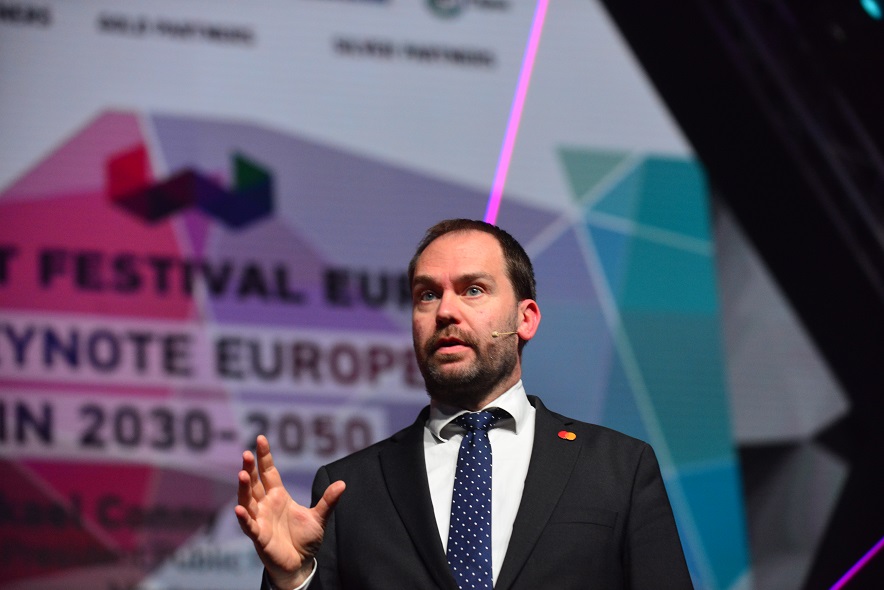 On the stage of Webit 2018 we also welcomed Mikael Conny Svensson - Vice-President Government Affairs & Public Policy, Mastercard Europe, who shared his vision for Europe in 2030-2050: “Innovation is absolutely necessary, not just to do business now, but to do it in the future too”
Explore the report and find more interesting insights here
By uniting data and analysis, an organization confidently adds value to its strategy and its further implementation, however, the adoption pace is still rather imperceptive. Only less than 30% of the organizations see their business units as “digitally enabled.” Thus, fundamental to a successful digital transformation is adequate cultural transformation. About 40% of respondents state that the process should be supported by significant initiatives related to organizational change, new recruitment and training programs, digital task forces activation, as well as strong understanding and commitment from core executives to keep and guide the “digi course”.
On the stage of Webit 2018 we also welcomed Mikael Conny Svensson - Vice-President Government Affairs & Public Policy, Mastercard Europe, who shared his vision for Europe in 2030-2050: “Innovation is absolutely necessary, not just to do business now, but to do it in the future too”
Explore the report and find more interesting insights here
By uniting data and analysis, an organization confidently adds value to its strategy and its further implementation, however, the adoption pace is still rather imperceptive. Only less than 30% of the organizations see their business units as “digitally enabled.” Thus, fundamental to a successful digital transformation is adequate cultural transformation. About 40% of respondents state that the process should be supported by significant initiatives related to organizational change, new recruitment and training programs, digital task forces activation, as well as strong understanding and commitment from core executives to keep and guide the “digi course”.
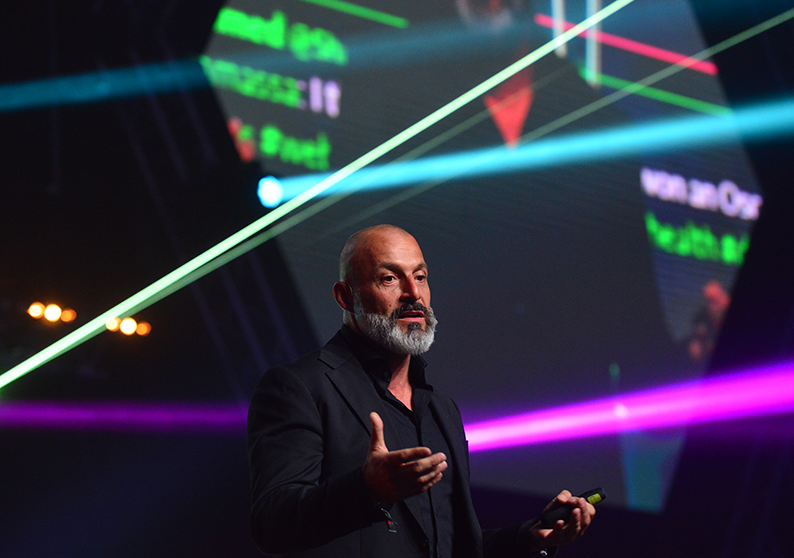 As Igor Beuker, a professional speaker, serial entrepreneur and Angel Investor shared his thoughts on innovation at our 10th birthday: “Innovation is a culture, not a department!”
Get the chance to hear about it,first hand experience at Webit.Festival Europe 2019, where attendance is 75% C-level.
Evolving and moving forward to the digitization of the business has been proven to be a strategic benefit to any organization. So, if for any reason you still doubt the value of digitizing your company or industry, come to Sofia - the digital capital and get insights from the people implementing this transformation worldwide.
Like what you read? Subscribe here and never miss Webit news and special promotions!
As Igor Beuker, a professional speaker, serial entrepreneur and Angel Investor shared his thoughts on innovation at our 10th birthday: “Innovation is a culture, not a department!”
Get the chance to hear about it,first hand experience at Webit.Festival Europe 2019, where attendance is 75% C-level.
Evolving and moving forward to the digitization of the business has been proven to be a strategic benefit to any organization. So, if for any reason you still doubt the value of digitizing your company or industry, come to Sofia - the digital capital and get insights from the people implementing this transformation worldwide.
Like what you read? Subscribe here and never miss Webit news and special promotions! The future of Health at Webit.Festival Europe 2018
Health is so important to all of us, it requires change. How do we create a better future for all of us?
In healthcare around the world there's change in quality, sometimes poor access. How do we enable technology to deliver the things that we all aspire? - to make healthcare free for all at a high quality. That's the role of Health.Summit chaired by prof. Shafi Ahmed. Medicine is the perfect example of how the fourth industrial revolution is changing all of us.What about Europe?
We need data and insights on the health of European citizens, on how we organize care, and on how much our health systems cost. The EC joined forces with the OECD and the Observatory on Health Systems and Policies, and analyzed each EU country. The reports show that our healthcare needs to be more effective, accessible and resilient. For example, 80% of healthcare costs are spent on treating chronic diseases, but just a fraction on prevention. Shifting on prevention not only tackles inequalities in health and quality of life, but also offers an enormous economic return. Today, one in four patients have no access to a family doctor or a local health center, and have to go to an emergency department. With available and affordable primary care we can avoid unnecessary hospital admissions. Too often patients are searching for the best possible treatment in a maze of scattered health services. Integrated care, where all care providers work more closely together delivers better results for patients. "The state of Health" in the EU links the strengths and challenges in the different European countries to common health priorities across the EU. The reports help policymakers make relevant and efficient choices so all of us can enjoy a healthy future.Teaching tens of thousands of people together to improve the education resources.
As a global surgeon prof. Shafi Ahmed thinks about how to scale the learning and education around the world. Now we are connected with cables, by phones and satellites. And because we are connected now we can reach far more. We have social media to connect with people. We are changing the paradigm of the doctor-patient relationship using AI, chat bots, deep machine learning, avatars and holograms. In the next 2-5 years we are going to communicate in a different way. The human interaction will little bit disappear because it is too expensive.
I thought "How can I connect with people around the world? Let's connect my avatar with other avatars in America, in India. Can they come to my theater together in this virtual space? They call me the Virtual Surgeon.
[embed]https://www.youtube.com/watch?v=-4T49_zz3HA[/embed]
Imagine someone operating on the other side of the globe, calling you and saying: "I need some advice, can you come?" Plane travel - too long, inefficient. What about transporting yourself as a hologram?
Shafi Ahmed has been spending a lot of time talking about how we use technologies in a way that we haven't done before. And at Webit.Festival Europe 2018 he announced that he and Mr. Martin Dockweiler are launching the first digital hospital in South America. The hospital will be called SAMD (Shafi Ahmed Martin Dockweiler) University Hospital. It will have a center of innovation, research, teaching. They will be testing new technologies.
The future is not today or tomorrow. It's happening all around us as we speak. And that is the future we create for ourselves.Missed the 2018 edition of Webit.Festival Europe? Don’t miss the 2019! Get your super early bird 2in1 tickets – 2 for the price of 1 here!
It is all about experience and successful business networking!
With all the space we need now - we decided that it is time go wild!
All the 6000 attendees from global enterprises, through SMEs to scaleups/startups, academia leaders and policy makers come to Webit for 4 main reasons:- to see the future (check the speakers and Europe's top 200 startups) - to establish their place in the future (policy makers and business leaders discuss digital policy initiatives) - to connect with the right people (see who attends) - and to make successful business with them and expand their networks So we take business networking at Webit very seriously!Thus today we present to you the new Webit Fountain Networking Lounge!
Yesterday we have commissioned a company to build a brand new Dancing Webit Fountain and a water mirror around which you shall have one more unique lounge for your successful networking. The magic is that after Webit this fountain shall be no more! A fountain built for only 3 days and only for your eyes! >GET YOUR WEBIT TICKET TODAY (prices go up this week)< The New Fountain Lounge adds to the number of other special lounges you may join and have your 1:1 or group business meetings while at Webit, including: - the AI Lounge - the Cybertech Lounge - the Cities 4.0 Lounge - the Blockchain Lounge - Innovate! Lounge - the Ladies Lounge - the Platinum Lounge Looking forward to welcome you @ Europe's tech, innovation and digital policy event for 2018!Real-life Iron Man – Richard Browning joins Webit in June 2018
Richard's vision is to build Gravity into a world class aeronautical engineering business, challenge perceived boundaries in human aviation, and inspire a generation to dare ask ‘what if…’. https://www.youtube.com/watch?v=JinhIHIF8Eo“The dream was to re-imagine an entirely new authentic form of human flight leaning on an elegant collaboration of mind and body augmented by leading edge technology. Gravity has to date been experienced by over a billion people globally with video views alone running at more than 60M within 7 days of launch.”
Richard also broke the record for fastest speed in body-controlled jet suit – he reached 32.02 mph and made his mark in the pages of Guinness World Records. He hopes that in the future he will smash it again.“The way you have to balance is pretty much the same stance Tony Stark has in the film,” Browning says.
Browning says that this is just the beginning of this technology journey. The next big thing his company is planning is adding wings to the suit, that will allow the person wearing it, to fly further, faster and higher and also use a lot less fuel than now.“As the engine starts pulling up, it starts to build you can sense the energy and the moment the ground leaves your feet and you’re actually in the air it’s a pleasure and joy.”
Webit.Festival Europe 2018 presents: Chris ‘Kubby’ Kubbernus
Here you can see a full list of the confirmed speakers at Webit.Festival, while here you can get all the information you need about the tickets for the event.
